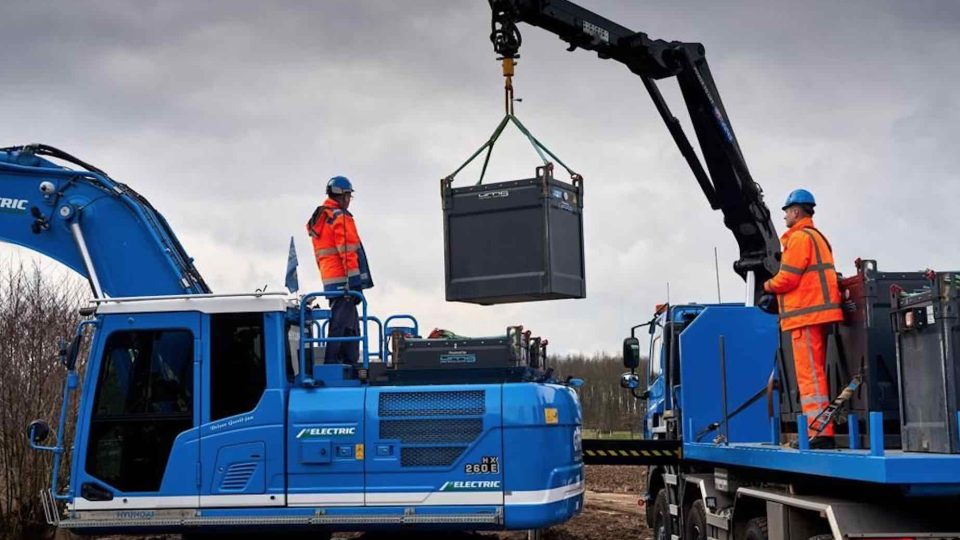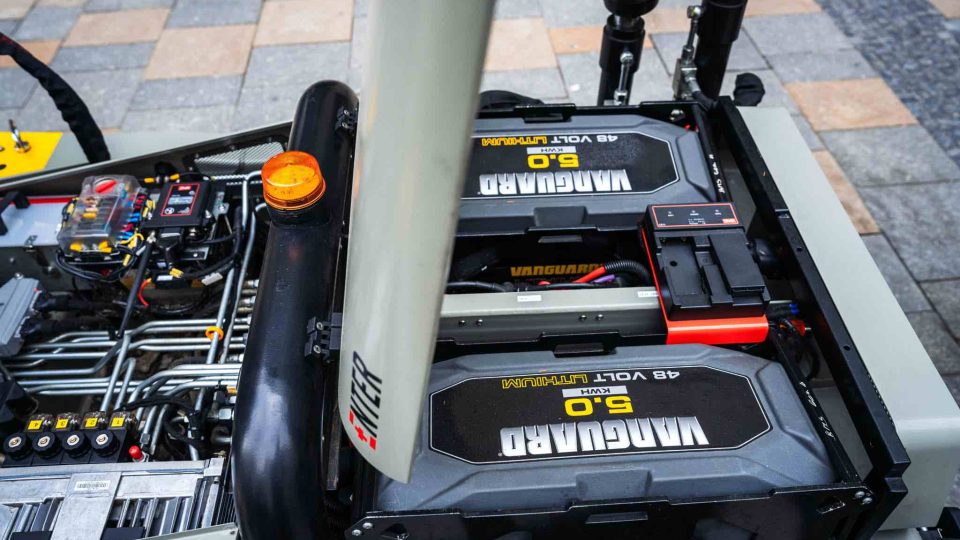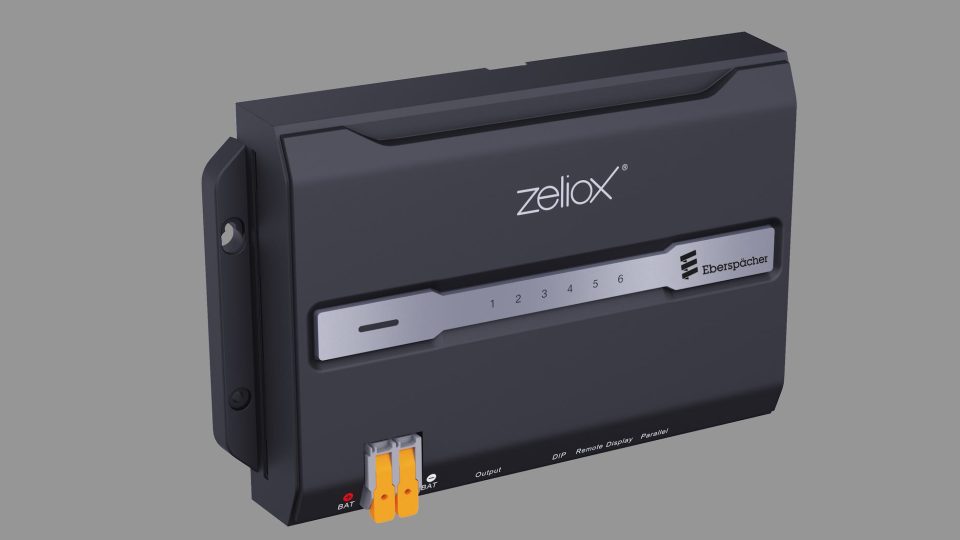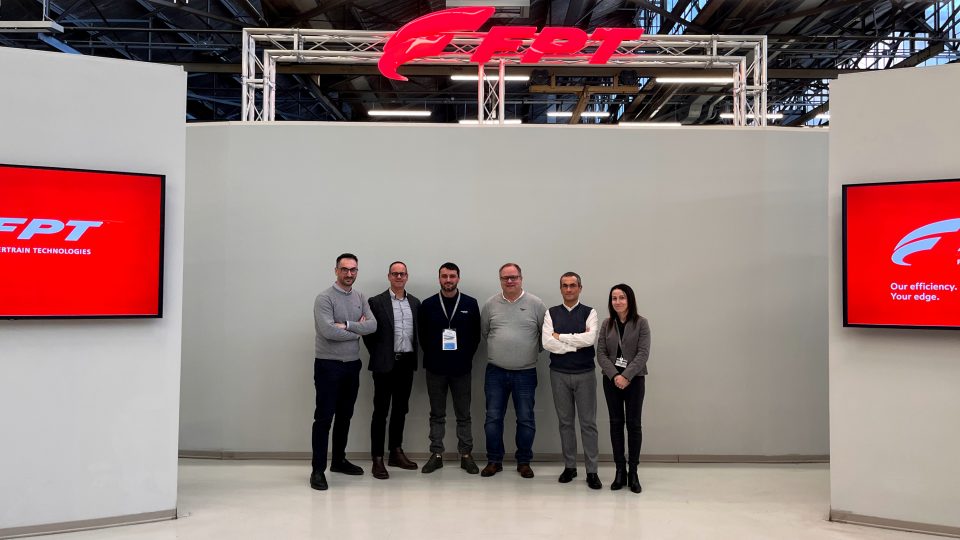What is holding the world from using renewable energy sources? A Report by REN21
«We are waking up to the bitter reality that the climate policy promises over the past ten years have mostly been empty words. The share of fossil fuels in final energy consumption has not moved by an inch», said Rana Adib, REN21’s Executive Director.
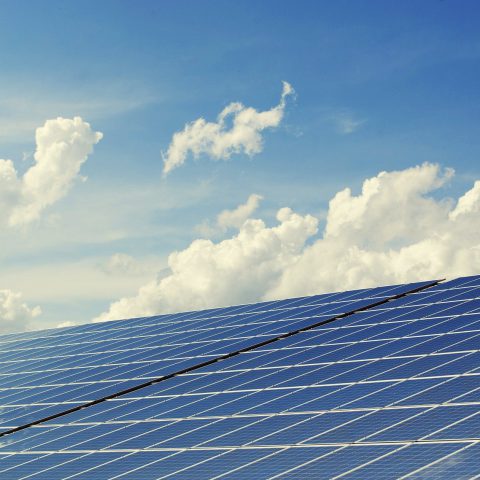
The international organization REN21 has released its Renewables 2021 Global Status Report focused on how (and why) it is necessary to promote and increase the use of renewable energy sources in all economic activities.
«We are waking up to the bitter reality that the climate policy promises over the past ten years have mostly been empty words. The share of fossil fuels in final energy consumption has not moved by an inch», said Rana Adib, REN21’s Executive Director, who will take part in the second stage of our Sustainable Powertrain Tour, on July 15. «Phasing them out and making renewables the new norm are the strongest actions we can take».

A wasted opportunity?
Indeed, the pandemic year 2020 could have been a gamechanger. Primary energy demand fell by 4 percent, but – according to REN21’s Report – even with this historic decline, G20 countries, the planet’s biggest polluters, barely met or even missed their unambitious renewable energy targets. The share of fossil fuels in the total energy mix is as high as a decade ago (80.3 percent vs. 80.2 percent today) and the renewable energy share only increased slightly.
The five G20 countries with 2020 renewable energy targets struggled toward their goals. The other 15 did not even have one.
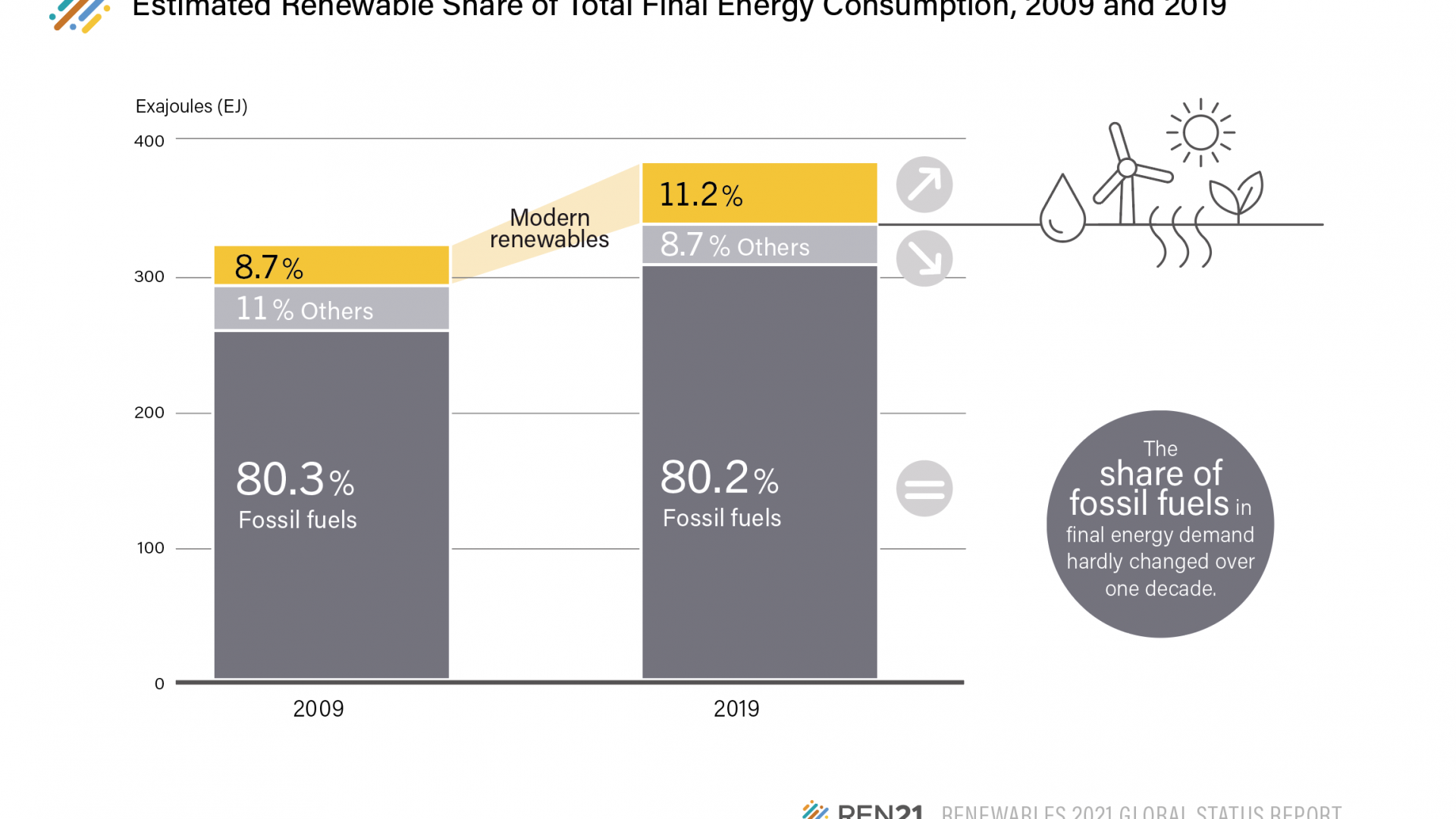
REN21 and the use of renewable energy sources. The case of the power sector
However, the power sector has made great progress already. Today, almost all new power capacity is renewable. More than 256 GW were added globally in 2020, surpassing the previous record by nearly 30 percent. In more and more regions, including parts of China, the EU, India and the United States, it is now cheaper to build new wind or solar PV plants than to operate existing coal-fired power plants. This progress could and should be replicated in all other sectors.
«The renewable energy transition is gaining pace because it makes business sense as well as environmental sense. Renewable electricity is already creating millions of jobs, saving businesses money, and providing energy access to millions. But businesses and governments need to go faster, not only for the environment, but to remain competitive in a renewably powered 21st century economy», added Sam Kimmins, Head of RE100.
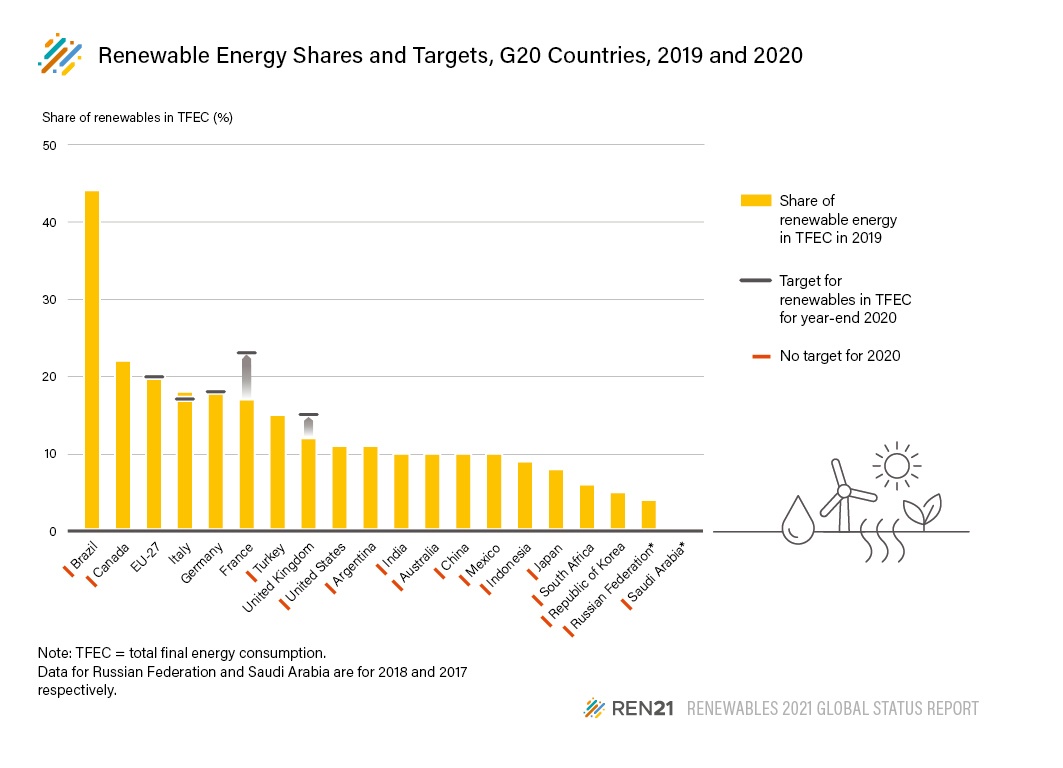
Recovery packages going to the wrong direction
The report notes that there has been a wave of stronger commitments to action on the climate crisis in 2020. This includes net zero carbon emissions targets by China, Japan and South Korea. Together with announcements of funding for a green economic recovery, taking public spending to levels higher than the Marshall Plan after World War II, this should have made 2020 the year when the world pushed the reset button for the global climate economy and renewables. But instead of driving transformation, recovery packages provide six times more investment to fossil fuels than to renewable energy.
This year’s report raises a fundamental question: what is holding the world back from using the COVID crisis as an opportunity for transformation?
Governments need to give a much harder push to renewables in all sectors. The window of opportunity is closing unless efforts are significantly ramped up, and it will not be easy to do. «Governments must not only support renewables but also rapidly decommission fossil fuel capacity. A good way to accelerate development is to make the uptake of renewable energy a key performance indicator for every economic activity, every budget and every single public purchase. Thus, every ministry should have short- and long-term targets and plans to shift to renewable energy coupled with clear end-dates for fossil fuels», concludes Rana Adib.




